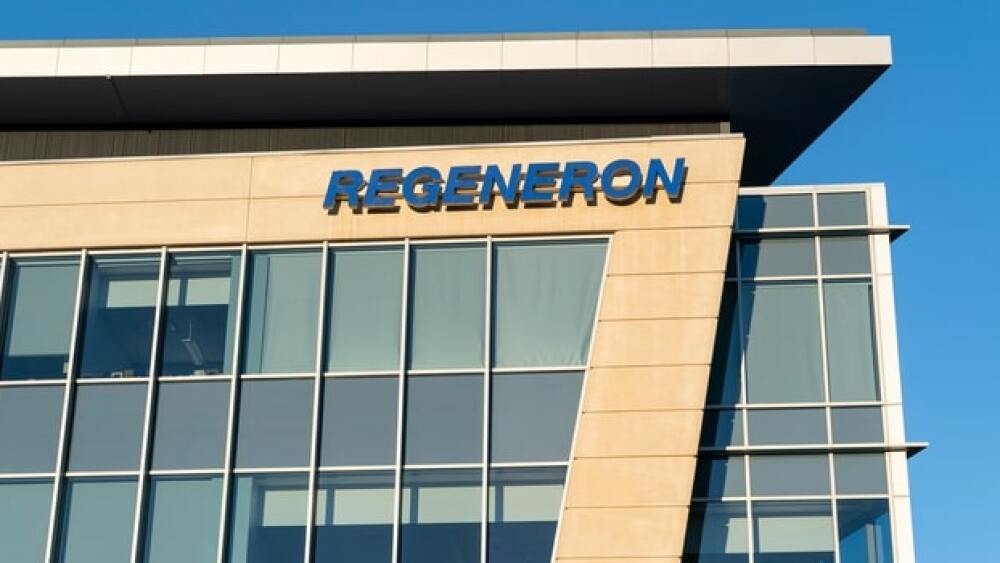Findings from a pivotal trial published in The Lancet show Libtayo® (cemiplimab), a PD-1 inhibitor jointly developed and commercialized by Regeneron Pharmaceuticals and Sanofi, was superior to platinum-doublet chemotherapy for improving overall survival in patients with locally advanced or metastatic non-small cell lung cancer (NSCLC) with ≥50% PD-L1 expression in tumor cells.
lev radin/Shutterstock
Findings from a pivotal trial published in The Lancet show Libtayo® (cemiplimab), a PD-1 inhibitor jointly developed and commercialized by Regeneron Pharmaceuticals and Sanofi, was superior to platinum-doublet chemotherapy for improving overall survival in patients with locally advanced or metastatic non-small cell lung cancer (NSCLC) with ≥50% PD-L1 expression in tumor cells.
The data, which were presented during a late-breaking presentation at the 2020 European Society for Medical Oncology (ESMO) Virtual Congress, provided a basis for regulatory submissions in the European Union (EU) and the U.S. Recently, the U.S. Food and Drug Administration (FDA) granted a Priority Review of the drug’s data, with the agency stating it expects an action date of February 28, 2021.
“These clinical results published in The Lancet support regulatory submissions for Libtayo as a potential new treatment option for patients with advanced NSCLC with PD-L1 expression of ≥50%,” according to a statement made by trial investigator Ahmet Sezer, M.D., Professor in the Department of Medical Oncology at Başkent University in Adana, Turkey. “Libtayo was superior in extending overall survival compared to chemotherapy, even with 74% of patients crossing over to the Libtayo arm following progression on chemotherapy.”
Treatment with Libtayo was also associated with a reduction in the risk of mortality by approximately 32% in all patients and by 43% in patients with confirmed PD-L1 expression of 50% or greater.
“In addition, the data included more advanced patient populations usually underrepresented in advanced NSCLC trials – including 12% with pretreated and stable brain metastases and 16% with locally advanced NSCLC who were not candidates for definitive chemoradiation,” Sezer said. “As a result, the medical community now has valuable new clinical evidence that could enhance our understanding of how to treat this deadly cancer.”
In terms of Libtayo’s safety profile, the researchers note that it was generally consistent with data reported in previous studies in NSCLC. Approximately 28% of patients in the Libtayo group and 39% of patients in the chemotherapy arm experienced grade 3 or 4 adverse events (AEs). A higher proportion of immune-mediated AEs were reported in patients assigned to Libtayo (17%) versus chemotherapy (2%).
Libtayo was the first systemic treatment approved in the U.S. for adults with metastatic cutaneous squamous cell carcinoma (CSCC) or locally advanced CSCC who are ineligible for curative radiation or curative surgery. Additionally, Libtayo was approved by the FDA as the first immunotherapy for patients with advanced basal cell carcinoma (BCC) previously treated with a hedgehog pathway inhibitor (HHI) or in those who are not eligible for an HHI. The therapy is also under review in the EU for locally advanced BCC previously treated with an HHI.
Regeneron is on a roll with FDA approvals, with the agency approving the drugmaker’s monoclonal antibody Evkeeza (evinacumab-dgnb) yesterday as an add-on therapy for adults and children ages 12 and above with homozygous familial hypercholesterolemia (HoFH). This represents the first approval from the FDA for an ANGPTL-3 Inhibitor. The therapy was approved based on results from the pivotal Phase III ELIPSE trial, which showed that Evkeeza cut down cholesterol levels by nearly half after 24 weeks in patients with ultra-rare inherited HoFH. The 24-week results persisted through an open-label period of 48 weeks.
Daniel J. Rader, chairman of the Department of Genetics in the Perelman School of Medicine of the University of Pennsylvania and a leading HoFH expert who was involved with Evkeeza clinical trials, called Evkeeza a potentially transformational new treatment.
“Existing therapies for HoFH are insufficient for the majority of patients,” said Daniel J. Rader, chairman of the Department of Genetics in the Perelman School of Medicine of the University of Pennsylvania, who was involved in the Evkeeza trials. “Evkeeza, through its unique mechanism of action, was shown to reduce LDL-C levels in patients with all forms of HoFH, even those with nearly no LDL receptor activity, and represents a highly meaningful improvement in our ability to control LDL-C levels in patients with HoFH.”





